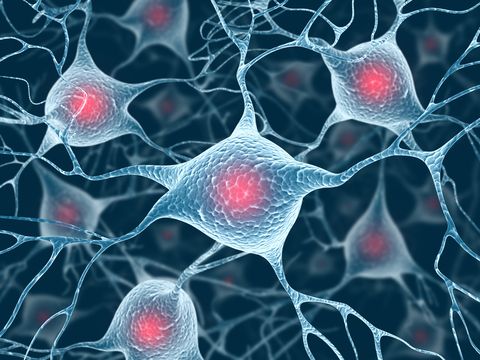Tag: neural pathways
Did you know that you have a superpower? Trust me, you do–we all do. The key is to figure out what it is, and how to use it and share it with the world, all for the power of good. Using our superpower is easy, but finding it is the hard part. I’ve spent a long time looking for mine, and I learned a few tips and tricks along the way that can help you find yours. And you don’t even have to spend fifty years looking for it the way I did. So here are a few simple steps to finding your own superpower.
First of all, be careful what you tell yourself, because what we believe is what we become. What we tell ourselves, and what we hear from other people, is what we eventually believe, even if it goes against our inherent belief system. There is a physiological reason for this. Our...
Mirror Neurons on the Wall….Mirror Neurons make You Smile
Written by Cheryl on . Posted in Uncategorized.
Mirror neurons on the wall….mirror neurons make you smile. This is a twist from one of the scariest fairy tales I’ve ever heard, Sleeping Beauty. But, what are mirror neurons, and why are they important?
They’re important because we have a tendency to mirror behavior that we observe. Imagine that you are having a bad day, and you come across someone who flashes you a radiant smile. Even though you may be carrying the weight of the world on your shoulders, the natural tendency is to smile back. Immediately your mood is lighter. You feel like your load has been lifted a bit, and all of a sudden your day just got better.
It’s not simply because someone smiled at you that lifted your spirits. When you see someone smile, there are neural pathways in your brain that are activated. These pathways...
What is Feldenkrais(R)?
Written by Cheryl on . Posted in Feldenkrais.
The Feldenkrais Method is a highly sophisticated form of neuromuscular re-education based on the scientific principle of neuroplasticity, which simply means that our nervous system is capable of changing and learning new patterns during the course of our entire lifetime.
Feldenkrais’ unique approach to neuroplasticity accesses our nervous system in a very gentle, but powerful way, through movement. We all have habitual patterns of moving, sensing, feeling and thinking that help us move easily through our day. However, some of our patterns may be harmful and destructive, resulting in chronic pain, joint dysfunction, headaches, neck and back pain, anxiety, stress and fatigue.
With Feldenkrais lessons, habitual patterns of stress, strain or “holding” are gently interrupted,...
A Feldenkrais(R) Valentine
Written by Cheryl on . Posted in Feldenkrais.
I have always loved Valentine’s Day, mostly because of the pretty decorations, but no Valentine’s Day could possibly compare to my first Feldenkrais Valentine’s Day.
I was in the second week of Feldenkrais Training, and deeply engaged in an Awareness Through Movement lesson, lying on my back, sensing my contact with the floor, and gently rolling my head from side to side as invited to do by my teacher who was leading the class through the lesson. During a rest, I opened my eyes and looked up at the ceiling. I was lying directly under a huge chandelier, which could be a little disconcerting in itself if you think about it. What if it fell and landed on my head? I started to do what I did best, which was worry and perseverate on anything and everything that could possibly...
Neuroplasticity and getting out of that rut….
Written by Cheryl on . Posted in Cheryl's View.
Trying to get out when you feel stuck in a rut, a habit, or a pattern that isn’t serving you well can feel pretty overwhelming. But, there is a way to gently crawl out of that rut without the risk of falling into an even deeper hole. The process is called neuroplasticity, and here are a few tips to keep in mind to help support the process.
First, make small, slow changes to allow for new motor and sensory pathways to be activated. Give yourself time to integrate the changes, and don’t get discouraged if you feel like you’re not making progress. Remember, these changes are taking place deep in your nervous system in a visceral, organic way, not in a cognitive, thinking way. You can’t facilitate the process by trying harder. That actually gets in the way of your own...
A tale of two neurons….
Written by Cheryl on . Posted in Health Tips.
I have always had a passion for the biological sciences, but when I experienced my first course in neuroscience, I knew I found my niche. My brain almost squealed with delight. I guess you could say I’m nuts about neurons. I even considered pursuing an advanced degree in neuroscience, but I just couldn’t wrap my brain around it, so to speak.
I couldn’t see myself working in a lab all day. I’m more of a people person. But I sure did love the subject. I still do; it’s like candy for my brain. But you don’t have to be a nerd about neurons to appreciate how our nervous system works. It’s a fascinating subject and it’s really not that complicated, so I decided to share some of the basics with you. After all, why should the neuroscientists have all...
Cheryl Ilov International
Email: info@Cherylilov.com









